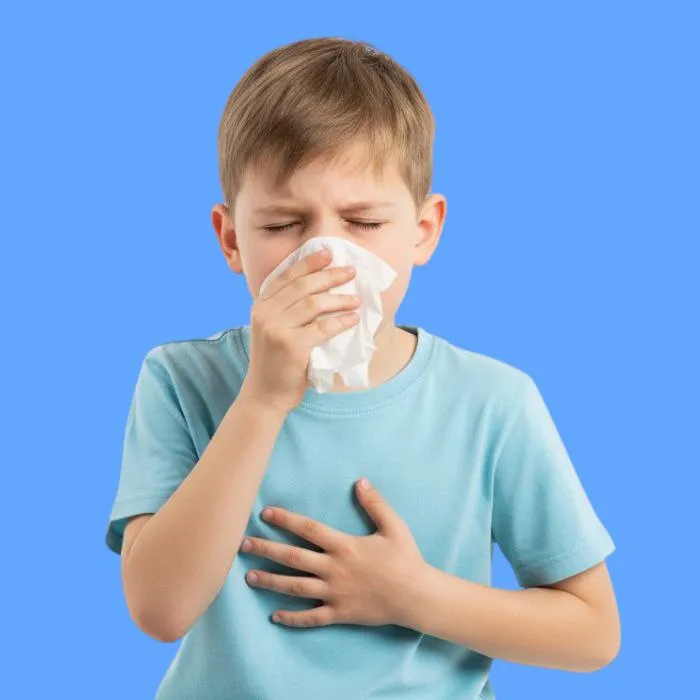What is Bronchitis?
Bronchiitis is an acute infection of the upper respiratory tract, affecting the nose, throat, and trachea. It is often caused by a viral infection, particularly during the winter months.
This illness is common among both children and adults and leads to symptoms such as coughing, a runny nose, and a mild fever.
Causes of Bronchitis
Bronchiitis is caused by several factors, including:
- Viral infections such as influenza viruses or the common cold.
- Exposure to extreme cold or sudden changes in weather.
- Weakened immune system or physical and mental exhaustion.
- Direct contact with infected individuals or crowded places.
Symptoms of Bronchitis
Symptoms usually appear gradually and include:
- Runny or blocked nose.
- Frequent sneezing and a scratchy throat.
- A dry or productive cough.
- A mild fever and sometimes general fatigue.
How to Diagnose Bronchitis
Diagnosis typically involves a physical examination and assessment of symptoms, including:
- A physical examination of the nose, throat, and chest.
- Listening to the lungs with a stethoscope.
- Checking the patient's medical history and any exposure to colds or infected individuals.
- In rare cases, the doctor may order blood tests or a nasal swab to identify the specific virus.
Treatment for Bronchitis

Treatment focuses on relieving symptoms and supporting the immune system. This includes:
- Drinking plenty of warm fluids.
- Pain relievers and fever reducers to alleviate pain and fever.
- Inhaling steam or using a saline nasal spray.
- Complete rest and avoiding exertion until recovery.
When to See a Doctor?
You should consult a doctor if symptoms persist for more than a week or are accompanied by a high fever, difficulty breathing, or bloody sputum, to avoid complications such as pneumonia or bronchitis.
Tips for Preventing the Disease
You can reduce your risk of catching bronchitis by following simple precautions, such as:
- Wearing warm clothing and avoiding direct exposure to cold.
- Washing your hands regularly and avoiding touching your face.
- Staying away from sick people and ventilating your home well.
- Strengthening your immune system with sufficient sleep and a healthy diet.
Frequently Asked Questions
Is the common cold contagious?
Yes, it is often transmitted through respiratory droplets expelled by infected individuals.
Can I recover from the common cold without medication?
Yes, in most mild cases, recovery is achieved with rest and fluids, but medications can alleviate symptoms.
How long does the common cold usually last?
It typically lasts from 5 to 10 days, depending on the severity of the infection and the individual's immune system.
Is the common cold dangerous?
No, it is not usually dangerous, but it can cause complications in children, the elderly, or those with pre-existing respiratory conditions.
Article Summary
The common cold is a common upper respiratory tract infection that causes coughing, a runny nose, and a mild fever. Following preventative measures and taking care of your body during the illness helps in a faster recovery and avoiding potential complications.